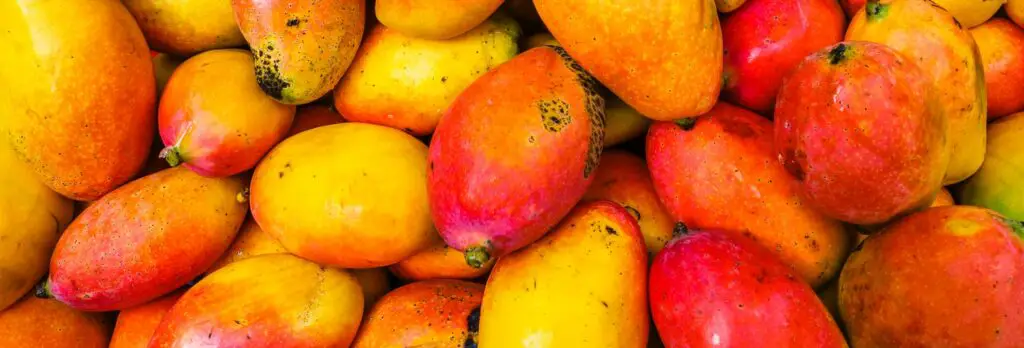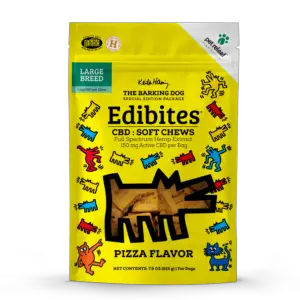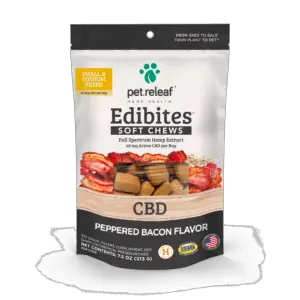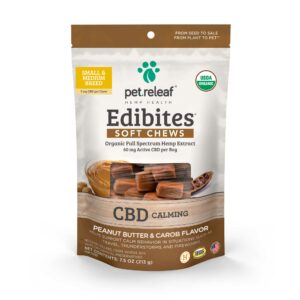
Key points
- Mangoes are safe for dogs, and they contain a lot of vitamins, minerals, dietary fiber, protein, and antioxidants. They are good for your dog’s eyesight, immune, and nervous systems, and they can also improve the function of your dog’s digestion system.
- Mangoes are not recommended for dogs with pancreatitis and diabetes. Mango skin and pits are dangerous for dogs and pose a potential choking and poisoning hazard.
- If your dog ate a mango pit and you suspect that it’s obstructing its stomach or intestines, then look for symptoms such as diarrhea, vomiting, decreased appetite, constipation, difficulty breathing, and stomach bloat.
Mango is a tropical fruit beloved by many people due to its refreshing taste and smooth texture, and it’s especially good in desserts and smoothies. But can dog owners share mango pieces with their dogs without facing any consequences?
The short answer is yes, but it’s essential to understand that the human digestive system works differently from dogs’. A lot of fruits that we consume on a daily basis are dangerous for dogs or can be given only in small amounts. Be mindful and always ask your vet whether you should give your dog a particular product and watch for your dog’s reaction after ingestion.
Table of Contents
Are Mangoes Good For Dogs?
Yes, you can absolutely include mango in your canine’s diet. It’s an amazing source of vitamins, minerals, antioxidants, dietary fiber, and even protein. Here is a list of mango benefits for dogs:
- Antioxidants found in mango help prevent cancer and degenerative diseases. They also help alleviate allergies and skin problems, as well as support the immune system.
- Vitamin A is good for eyesight, and it’s especially helpful in senior dogs. It also prevents cataracts and assists with night blindness and dry eyes. Vitamin A is good for your canine’s skin and coat, and it promotes the proper function of the kidneys, lungs, and liver.
- Mangoes contain Vitamin C, which helps deal with stress; vitamin B6, which is good for the nervous and immune systems; and vitamin E, which prevents coronary heart disease.
- Mangoes are high in dietary fiber, which can help significantly improve the function of your dog’s digestive system. In addition to helping improve digestion, it can also relieve diarrhea and constipation if your dog often has an upset stomach.
- Protein found in mangoes facilitates muscle and tissue repairs, while potassium promotes a healthy nervous system.
- In addition to these benefits, some studies have proven that the consumption of this fruit lowers blood cholesterol levels and decreases inflammation.

Are Mangoes Bad For Dogs?
There are a few cases when giving your dog mango may not be a good idea. Here are some things to keep in mind:
- If your dog suffers from pancreatitis or diabetes, consult with your vet on whether you should give it mangoes because dogs with these conditions require a special diet.
- Don’t give your dog mango skin because your pup may develop a rash on its skin if it touches it. It’s all because of urushiol, a compound found in mango skin, poison oak, and poison ivy. Dogs have very vulnerable digestive systems, and eating mango skin can upset your puppy’s stomach and cause vomiting or blockage in the intestines.
- Mango pits present a potential choking hazard for dogs. If your dog swallows a mango pit, it can get stuck in its digestive system and cause intestinal obstruction and potentially life-threatening issues. It also contains cyanide, which is poisonous to both canines and humans.
- Don’t overfeed your dog mango because the fruit contains a lot of fiber, and since dogs are not used to having fiber in their diets, too much of it can cause stomach upset and diarrhea.
- Mangoes are high in sugar levels, so if you decide to feed your pet this fruit, stick to small portions to avoid provoking tooth decay.
What Happens If A Dog Eats A Mango Pit Or Mango Skin?
 If you think that your dog may have swallowed a mango pit and now has an obstruction in its digestive system, you should look for the following symptoms: diarrhea, abdominal pain, vomiting, lethargy, decreased appetite, constipation, difficulty breathing, stomach bloat.
If you think that your dog may have swallowed a mango pit and now has an obstruction in its digestive system, you should look for the following symptoms: diarrhea, abdominal pain, vomiting, lethargy, decreased appetite, constipation, difficulty breathing, stomach bloat.
Call your veterinarian immediately if you see any of the symptoms mentioned above because some of these can be fatal if left untreated. Your vet will most likely run diagnostic tests, such as x-rays and a physical exam to find out the cause of the issue.
If your dog eats some mango skin or a mango pit, it doesn’t mean that you need to be concerned right away because, technically speaking, they are edible. Just keep an eye on your pet and watch for symptoms like vomiting or diarrhea.
Can I Give My Dog Dried Mango?
Small amounts of dried mango won’t harm your dog, but try to stick with fresh fruits for several reasons. First, the drying process reduces the amount of vitamins in the fruit and, therefore, decreases some of its health benefits. Also, dried mangoes contain a lot of sugar and carbohydrates, which makes them a high-calorie product. Finally, if your dog eats too much dried mango, it can result in stomach upset and tooth decay.

How Much Mango Should I Give My Dog?
 The amount of mango your dog can consume safely should be determined by your vet, as it depends on your dog’s breed and size. Usually, larger dogs are allowed to have about one-fourth of a cup of mango per day but remember that this may not work for your pet, and different dogs can have a different reaction to the product.
The amount of mango your dog can consume safely should be determined by your vet, as it depends on your dog’s breed and size. Usually, larger dogs are allowed to have about one-fourth of a cup of mango per day but remember that this may not work for your pet, and different dogs can have a different reaction to the product.
The best way to introduce mango to your pet is to give it as a treat and not a part of the whole meal. Treats should make up no more than 10% of your pet’s daily food intake, and the other 90% should be regular dog food.
The safest option is to give your dog one-quarter cup of fresh mango once a week (or twice a week if you have a large dog). This portion will prevent diabetes and obesity, as one cup of this fruit contains 99 calories and 22.5 g of sugar.
Remember to gradually introduce mango to your pet, especially if you are not sure whether your dog is allergic to it.
How To Feed Mango To Dogs?
Serving mangoes to your dog requires little to no effort. All you need to do is wash the fruit thoroughly, peel the skin off, remove the large pit and slice the fruit. The size of the pieces should depend on your dog’s size. For smaller pups, cut bite-sized pieces to avoid creating a choking hazard. Larger dogs can eat bigger slices.
In addition to giving your pet sliced mango, you can puree or stir it into some cottage cheese to prevent stomach upset. In the summer, you can freeze mango with water in an ice cube tray and give it as a cool treat.

Remember to never give your dog rotten fruits, as they produce ethanol (alcohol), which is poisonous to canines. The symptoms of alcohol poison include vomiting, tremors, and seizures and require immediate veterinary attention.
What Fruit Can I Give My Dog Besides Mango?
Dogs should not be allowed to eat some human foods, but the list of fruits that you can share with your pet includes watermelon, oranges (flesh only), bananas, strawberries, cranberries, pineapple (flesh only), and apples without core and seeds.
FAQ
How much mango can I give my dog?
For larger dogs, one-quarter cup of fresh mango once or twice a week is an appropriate amount to prevent diabetes and obesity.
What fruit is bad for dogs?
Cherries, grapes, and raisins are poisonous for dogs, while persimmons and citrus fruit like lemons, limes, and grapefruit can cause an upset stomach.
Is frozen mango good for dogs?
Yes, you can freeze the mango without the skin and pit and give it to your dog as a treat.
Can dogs eat dried mango?
Yes, dogs can eat dried mangoes but only in moderate amounts because they contain a lot of sugar and carbohydrates.




